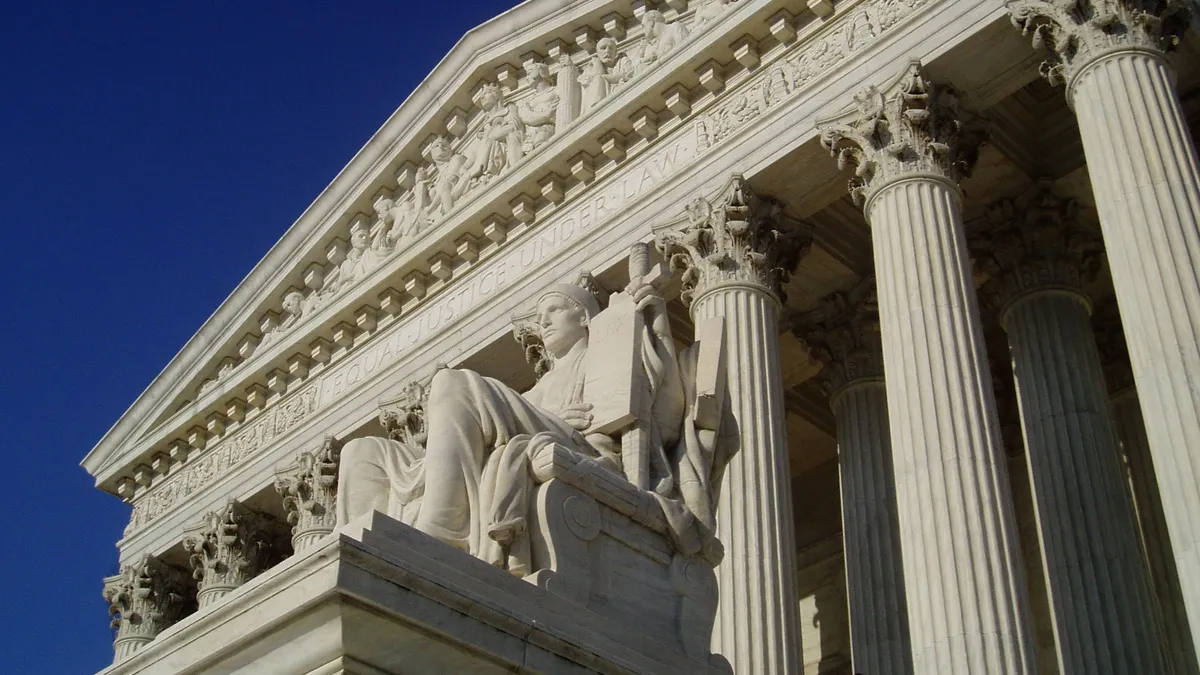Dive Brief:
- The U.S. Supreme Court agreed Friday to hear two consolidated cases challenging the Trump administration's rules allowing employers to claim exemption from the Affordable Care Act (ACA)'s contraceptive mandate on the basis of either religious beliefs or moral convictions.
- The appeal arose from a case in the 3rd U.S. Circuit Court of Appeals in which the states of Pennsylvania and New Jersey sued to block the rules' implementation. The 3rd Circuit affirmed in July a lower court's decision to preliminarily enjoin the rules because the two states were "likely to succeed" in proving that the administration did not follow the Administrative Procedure Act (APA) when promulgating the rules and that the rules were not authorized by either the ACA or the Religious Freedom Restoration Act, according to court documents.
- The Trump administration and the Little Sisters of the Poor, an intervenor in the 3rd Circuit case, asked the High Court to rule on a set of questions: whether the federal government had statutory authority to expand the exemption; whether the government's decision to forgo notice and opportunity for public comment invalidated the rules; and whether the 3rd Circuit erred in issuing a nationwide preliminary injunction of the rules.
Dive Insight:
A ruling by the Supreme Court could offer clarity on an ACA component that has been the subject of regulatory activity and litigation for years.
Under President Donald Trump, the U.S. Department of Health and Human Services (HHS) originally published interim final rules in 2017, effectively allowing any U.S. employer to receive an exemption. At the time, HHS referred to the changes as "interim final rules with request for comments." Essentially, the administration concluded that the APA's "good cause" exemption allowed the agency to issue interim final rules without notice and comment to "protect religious liberty and end the litigation that had beset the rules," according to the petition. The administration solicited public comments for 60 days following promulgation of the rules.
A flurry of litigation followed. Both the Massachusetts attorney general and the ACLU sued HHS, leading to a pair of rulings by federal judges that enjoined the rules in December 2017. As it appealed the preliminary injunction against the interim rules, the administration published a set of final rules in November 2018 that it said superseded the interim rules. In January 2019, federal judges issued separate injunctions on these rules as well.
Most U.S. employers, 71%, offer contraceptive coverage, according to results of the Society for Human Resource Management's 2019 Employee Benefits Survey. Should the administration's rules survive the upcoming court battle, the largest impact may be felt at small and mid-sized U.S. employers, according to experts who previously spoke to HR Dive.













